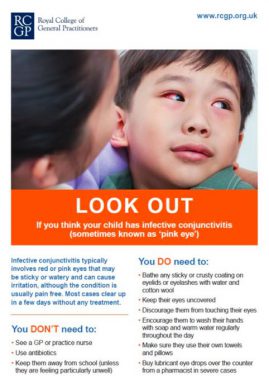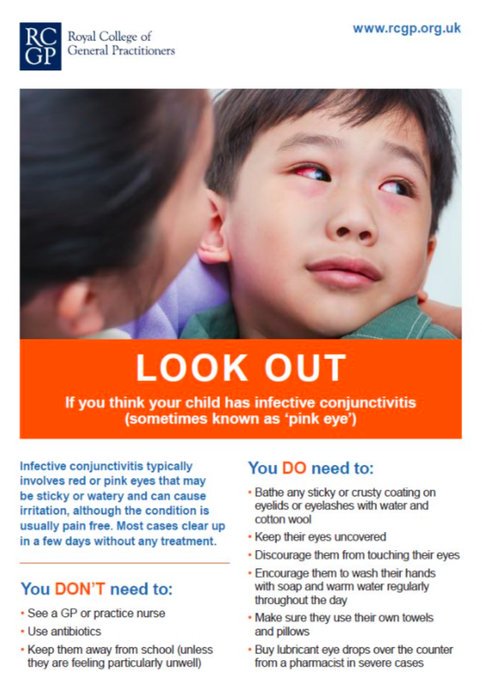GP leaders urge nurseries to change conjunctivitis antibiotics policies

An estimated 160,000 GP appointments could be freed up if schools and nurseries stop sending home children with infective conjunctivitis, the RCGP has said.
Some schools are refusing to admit children with the condition unless they have a prescription for antibiotics, but the RCGP has written to Ofsted calling for nursery, pre-schools and childcare providers to re-think their policy.
The situation is ‘clogging up’ appointments for other patients, forcing parents to take time off work, and encouraging unnecessary use of antibiotics, said the college – despite there being little evidence to show that antibiotics help the condition any more than waiting for it clear up naturally.
The RCGP has also published a leaflet with ‘top tips’ for teachers, childcare professionals and parents raise awareness of the correct treatment for minor infections.
Research published in the BJGP earlier this year revealed that 87% of nursery schools across England, Scotland and Wales currently exclude children with conjunctivitis from attending.
The policy of half of these (49%) is to refuse to admit the children without a prescription for antibiotics, against clinical guidance from Public Health England advising that treatment for conjunctivitis is only appropriate, and indeed necessary, in severe cases.
RCGP chair Dr Maureen Baker said: ‘GP practices are being swamped with requests for appointments and antibiotics to treat minor conditions, including conjunctivitis, and these cases are clogging up the system, which leads to longer waiting times for patients whose needs might be more urgent.

conjunctivitis rcgp poster
‘Infective conjunctivitis is an unpleasant condition but antibiotics are not the answer in most cases – especially as it’s a viral infection where antibiotics are ineffective.’
Dr Baker added that ‘growing resistance to antibiotics will have severe consequences for the health of our population globally’.
Visit Pulse Reference for details on 140 symptoms, including easily searchable symptoms and categories, offering you a free platform to check symptoms and receive potential diagnoses during consultations.










